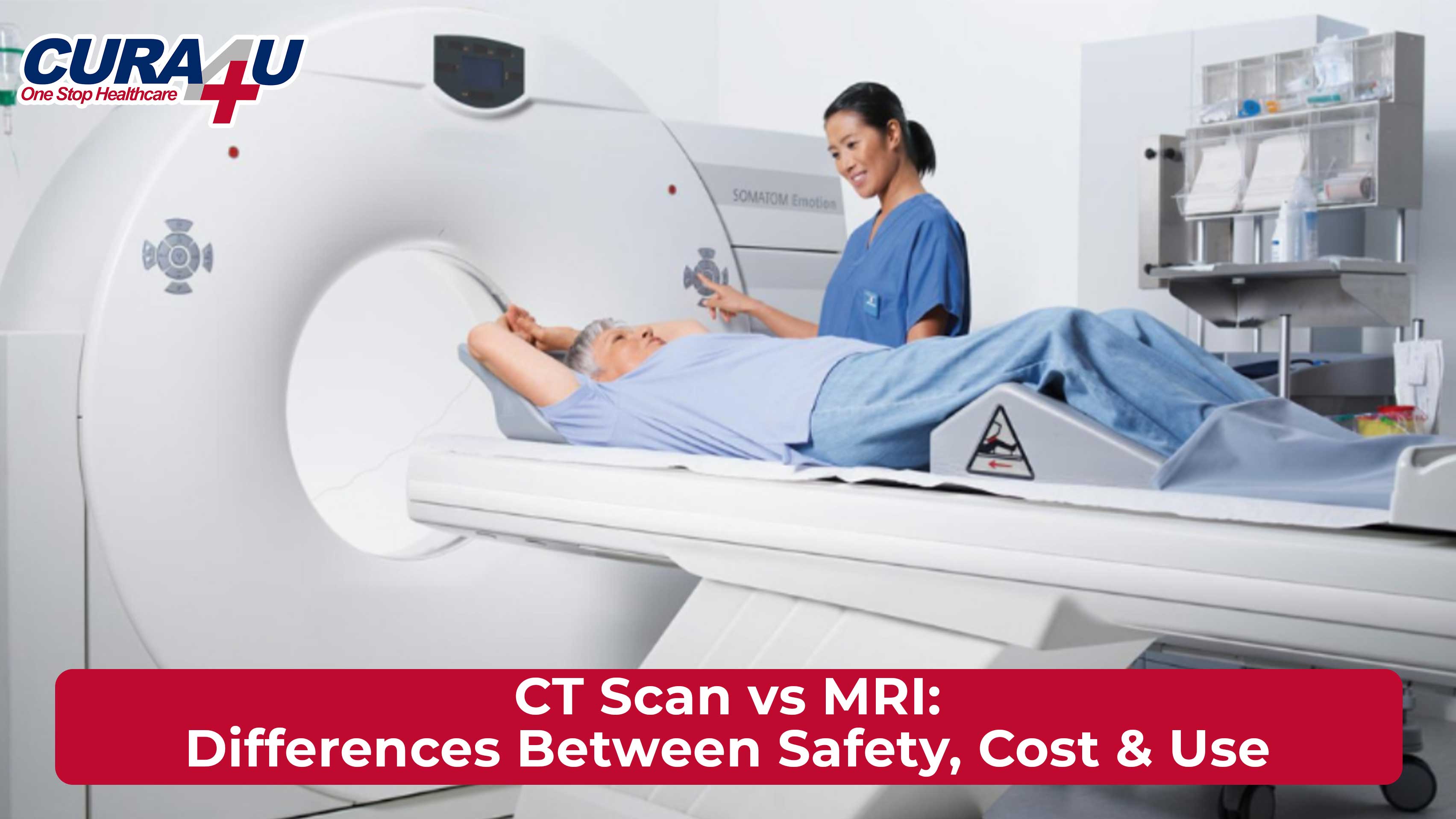A commonly asked question is about the differences between a CT scan and an MRI scan and whether one test is better than the other. In actuality, both CT scans and MRI scans are valuable diagnostic imaging exams used by doctors.
CT Scan
A computerised tomography scan, commonly called a CT scan, is a series of X-ray images taken from multiple angles around your body, then used to create cross-sectional images (slices) of the body using computer processing. These allow a much more detailed view of your body than typical X-rays and show the soft tissues, blood vessels, and bones.
CT scans are beneficial and quick so they are used primarily in fast-paced patients who may have internal injuries from trauma. Computerised tomography scans can visualize almost all body parts to diagnose disease, determine the extent of injury, and plan medical, surgical, or radiation treatment.
MRI Scans
MRI, which stands for magnetic resonance imaging, is an imaging exam that allows doctors to view highly detailed images of the inside of your body using radio waves and a magnetic field.
MRI images are taken with an MRI scanner inside a tube. This exam allows doctors to visualize the bones, joints, brain, spinal cord, heart, and blood vessels. This exam can be used to diagnose various conditions of the bones and tissues and monitor the success of ongoing treatments.
The Differences between MRI and CT Scan
There are many significant differences between MRI and CT scans, the most significant of which are the procedures of both imaging exams. MRIs are performed using radio waves and magnetic fields, while CT scans use multiple X-ray images. Other differences are:
- Both these diagnostic tools also allow doctors to see the soft tissues of the body, but MRI allows doctors to see detailed information about the inner organs and soft tissue like the brain, chest cavity, reproductive system, and other organ systems, unlike a CT scan
- CT scans expose the patient to a small amount of radiation, while MRIs do not. The radiation amount is not harmful to a fully grown human. Still, it may be to a developing fetus, so CT scans cannot be used on pregnant women.
- MRIs usually cost more than CT scans
- CT scans are less frightening and more comfortable for patients. There is no need to be enclosed in a tube-like MRI and no loud noises. CT scans are open, unlike MRIs, which can cause claustrophobia.
- MRIs take a longer time than CT scans; on average, around 40 minutes. The duration depends on the parts of the body being examined
- MRI scanners may cause a safety issue due to their strong magnets.
CT Scan vs MRI for Back Pain
A CT scan is better than an MRI for the imaging of calcified tissues, like bones. CT scans produce excellent detail used to diagnose osteoarthritis and fractures. Also, patients with metal or certain medical implants cannot undergo MRIs due to the magnetic field pulse. However, CT scans can be performed regardless of metal or medical implants. Thus, for spinal issues, CT scans are preferred. However, it depends on your specific situation and your doctor's opinion.
CT Scan vs MRI for Abdominal Issues
Abdominal CT scans have excellent diagnostic potential for doctors. Choosing an MRI or CT scan depends on the type of anatomy they are trying to visualise. Anatomy that contains a lot of air or calcium is hard to visualise on an MRI scan and shows up in more detail on a CT scan. A CT scan will commonly be recommended if you need a public image of a specific area like your internal organs or due to a fracture or head trauma.
However, MRIs are highly beneficial for capturing images of suspected abnormal tissue within the body and providing a higher resolution image of the tissues. So, if you need a highly detailed visualisation of your organs, ligaments, or soft tissue, your doctor will order an MRI. MRIs help diagnoses common abdominal issues like soft tissues, torn ligaments, and herniated disks.
Safety
Both MRIs and CT scans are generally considered safe. However, in particular circumstances, there can be cause for safety concerns.
MRIs are unsafe for patients who have some pacemakers or defibrillators. Metal devices can interact with the MRI's powerful magnets and may be pulled out by the magnetic field. MRIs are also unsafe for patients with aneurysm clips. They present the danger of the person dying of internal bleeding in the brain.
However, CT scans do not have these problems. But since they use X-rays to obtain the images, the patient is exposed to a low amount of radiation, which can harm developing fetuses and pregnant women.
Costs
CT Scan Cost
According to collected data, a CT scan in the United States without insurance costs around $300 to $6,750 and averages $3,275. Whether you have your CT scan performed in an outpatient facility or an inpatient facility such as a hospital can highly alter the cost of your exam.
MRI Cost
According to collected data in the United States, the average cost of an MRI in the United States without insurance is $2,611. However, many factors can vary this cost around hundreds or thousands of dollars due to your location, state, and insurance status.












